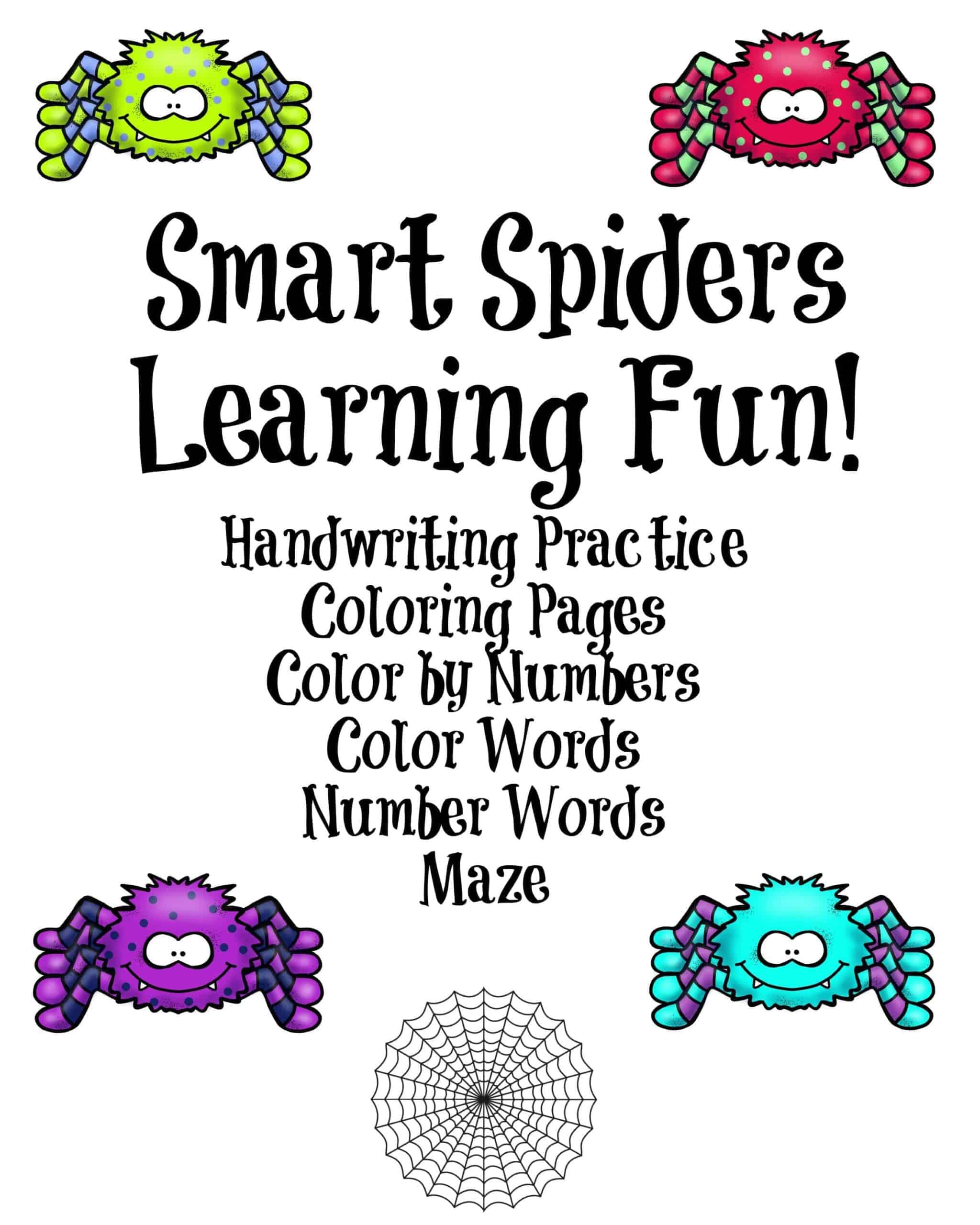Have you ever wondered how smart spiders really are? They’re not just creepy crawlies waiting to scare the living daylights out of you. Believe it or not, spiders are far more intelligent than most people give them credit for. From intricate web designs to problem-solving skills, these tiny creatures pack a surprising amount of brainpower in their tiny bodies. So, let’s dive into the fascinating world of spider intelligence and uncover the truth about how smart they really are.
When you think of spiders, the first thing that comes to mind is probably their ability to weave those beautiful webs. But did you know that this is just the tip of the iceberg? Spiders are incredibly adaptable, resourceful, and even strategic when it comes to survival. In this article, we’ll explore everything from their cognitive abilities to their unique problem-solving techniques, proving once and for all that spiders are way smarter than you think.
Before we get into the nitty-gritty details, let’s set the record straight. While spiders may not have the same level of intelligence as humans or even some mammals, they’re still pretty impressive in their own right. Their behavior, instincts, and adaptability make them one of the most fascinating creatures on the planet. So, buckle up because we’re about to take a deep dive into the world of spider smarts!
Read also:Aishah Sofey Onlyfans The Rising Star Shining Bright
Understanding Spider Intelligence: What Does It Mean to Be Smart?
When we talk about how smart spiders are, it’s important to define what we mean by intelligence in the animal kingdom. For spiders, intelligence isn’t about solving math problems or writing essays—it’s about survival. Their brains are tiny, but they’ve evolved to develop complex behaviors that help them thrive in their environments. Let’s break it down:
- Problem-solving abilities: Spiders can adapt to new challenges and find creative solutions.
- Memory retention: Some species can remember past experiences and use that knowledge to their advantage.
- Social behavior: Believe it or not, some spiders exhibit social behaviors, working together to achieve common goals.
Spiders may not have the same cognitive functions as humans, but their intelligence is highly specialized and tailored to their needs. This makes them incredibly effective at what they do.
Spider Webs: A Masterpiece of Engineering
One of the most obvious signs of spider intelligence is their ability to create intricate webs. These aren’t just random strands of silk—they’re carefully designed structures that serve multiple purposes. Here’s why spider webs are a testament to their intelligence:
- Precision: Spiders can adjust the tension and structure of their webs to maximize prey capture.
- Versatility: Different species of spiders build different types of webs, each suited to their specific hunting style.
- Efficiency: Spiders use the least amount of silk possible to create the strongest possible web, proving they’re masters of resource management.
So, the next time you see a spider web, take a moment to appreciate the sheer brilliance behind its design. It’s not just a trap—it’s a work of art.
Types of Spider Webs and Their Functions
Not all spider webs are created equal. Different species of spiders build different types of webs, each with its own unique function. Here are some of the most common types:
- Orb Webs: The classic circular web you see in movies and books. These are great for catching flying insects.
- Tangle Webs: Also known as cobwebs, these messy-looking webs are actually highly effective at trapping crawling insects.
- Funnel Webs: These webs have a funnel-shaped hiding spot where the spider waits for prey to wander in.
Each type of web is a reflection of the spider’s intelligence and adaptability. It’s like they’re customizing their tools to fit their specific needs.
Read also:Briialexia Onlyfans The Rise Of A Digital Sensation
Problem-Solving Skills: How Spiders Tackle Challenges
Spiders aren’t just passive hunters—they’re active problem-solvers. When faced with a challenge, they use their intelligence to find creative solutions. Here are a few examples:
- Web Repair: If a web gets damaged, spiders will repair it rather than starting from scratch. This shows they understand the value of conservation and efficiency.
- Predator Avoidance: Some spiders use vibrations in their webs to detect predators and escape before they’re caught.
- Hunting Strategies: Many spiders use clever tactics to catch their prey, such as pretending to be injured or using decoy webs to lure unsuspecting victims.
These behaviors demonstrate that spiders are not only intelligent but also highly strategic in their approach to survival.
Memory and Learning: Do Spiders Remember?
Believe it or not, some spiders have the ability to remember past experiences and learn from them. This is especially true for jumping spiders, which are known for their advanced cognitive abilities. Studies have shown that these spiders can:
- Remember the location of prey.
- Recognize patterns and use them to their advantage.
- Learn from trial and error, improving their hunting techniques over time.
While their memory may not be as complex as ours, it’s still a remarkable feat for such small creatures.
Social Spiders: The Surprising World of Group Behavior
When most people think of spiders, they imagine solitary creatures that prefer to be left alone. But did you know that some spiders are actually social? Species like the African funnel-web spider and the social orb-weaving spider live in groups and work together to build massive communal webs. Here’s how they do it:
- Division of Labor: Each spider in the group has a specific role, whether it’s building the web, hunting, or taking care of the young.
- Communication: Social spiders use vibrations and chemical signals to communicate with each other.
- Cooperation: By working together, these spiders can catch larger prey than they could alone.
This level of cooperation and communication shows that spiders are capable of much more than we originally thought.
The Benefits of Social Behavior
Social behavior in spiders comes with several advantages:
- Increased chances of survival.
- More efficient hunting and web-building.
- Better protection against predators.
It’s a win-win situation for these spiders, proving that teamwork really does make the dream work—even in the animal kingdom.
The Science Behind Spider Intelligence
So, what exactly makes spiders so smart? The answer lies in their biology. Spiders have tiny but powerful brains that are packed with neurons, allowing them to process information quickly and efficiently. Here are some key factors that contribute to their intelligence:
- Neurotransmitters: Spiders use neurotransmitters to communicate between neurons, enabling them to make quick decisions.
- Sensory Organs: Spiders have highly developed sensory organs that allow them to detect vibrations, smells, and even light.
- Adaptability: Over millions of years, spiders have evolved to become highly adaptable, allowing them to thrive in a wide range of environments.
While their brains may be small, they’re incredibly efficient at what they do. This combination of biology and evolution has resulted in some truly remarkable abilities.
Studies and Research: What Scientists Are Saying
Scientists have been studying spider intelligence for years, and their findings are fascinating. Recent studies have shown that:
- Jumping spiders can plan complex routes to reach their prey.
- Some spiders can recognize themselves in mirrors, indicating a level of self-awareness.
- Social spiders exhibit behaviors similar to those seen in social mammals, such as cooperation and communication.
These discoveries are changing the way we think about spider intelligence and proving that there’s still so much we don’t know about these incredible creatures.
Conclusion: Are Spiders Smarter Than We Think?
In conclusion, spiders are way smarter than most people give them credit for. From their intricate web designs to their problem-solving skills and social behaviors, these creatures are a testament to the power of evolution and adaptability. So, the next time you see a spider, take a moment to appreciate just how intelligent they really are.
Now, it’s your turn. What do you think about spider intelligence? Do you have any interesting stories or experiences to share? Let us know in the comments below, and don’t forget to share this article with your friends and family. Together, let’s spread the word about these amazing eight-legged creatures!
Table of Contents
- Understanding Spider Intelligence: What Does It Mean to Be Smart?
- Spider Webs: A Masterpiece of Engineering
- Types of Spider Webs and Their Functions
- Problem-Solving Skills: How Spiders Tackle Challenges
- Memory and Learning: Do Spiders Remember?
- Social Spiders: The Surprising World of Group Behavior
- The Benefits of Social Behavior
- The Science Behind Spider Intelligence
- Studies and Research: What Scientists Are Saying
- Conclusion: Are Spiders Smarter Than We Think?


